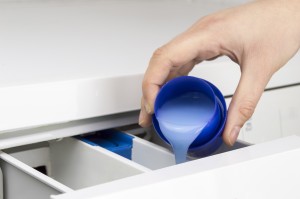Fabric softener certainly isn’t a laundry must; however, the softer, fluffier feel that it provides has made this laundry product a staple in many washing machines. Without the use of a fabric softener, your clothes can be left with a scratchier, rougher feel to them.
How Much Do You Know About Fabric Softeners?
It’s important to remember that fabric softeners are made of chemicals that are then applied to your clothes, which comes in contact with your skin. If you notice that your skin is irritated after using a specific fabric softener, try a fragrance or dye-free version. It’s often the chemicals added to provide a colour and scent that causes skin irritation.
In addition to adverse skin reactions, consider unwanted side-effects with your clothes. Studies have shown the chemicals found in fabric softeners can impede their ability to properly absorb water. This can create an issue with items like towels or cloth baby diapers, in which these items’ performance is compromised.
Alternatives to Fabric Softener
If you have decided that fabric softener isn’t the ideal option for you or your family, you’re in luck. Don’t settle for scratchy clothes! Here are some alternatives to using fabric softener in the washing machine:
- Lower your washing machines spin speed. This reduces the chances of hard towels coming from the washing machine.
- Make your own fabric softener. Homemade fabric softener is a great way to avoid the unnatural ingredients found in store-bought products.
- Hypoallergenic dryer balls are another option to minimize static cling and soften clothes for when they come out of the dryer.
At the end of the day, it’s your decision how you choose to wash your clothes but if you’ve been looking for a replacement for fabric softener, hopefully you have gained valuable insight on alternative clothes washing products.

